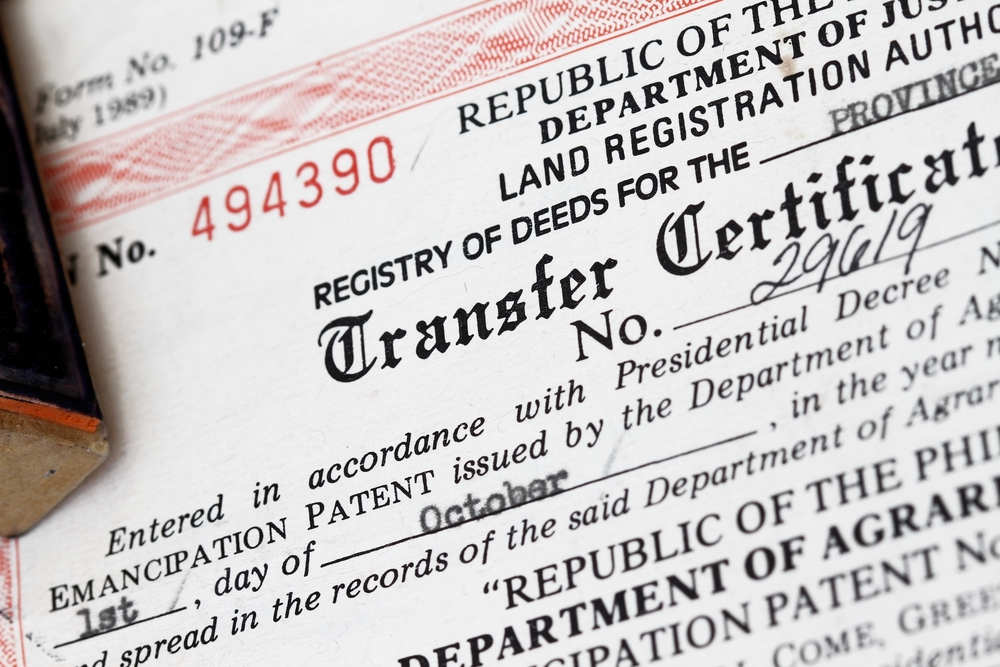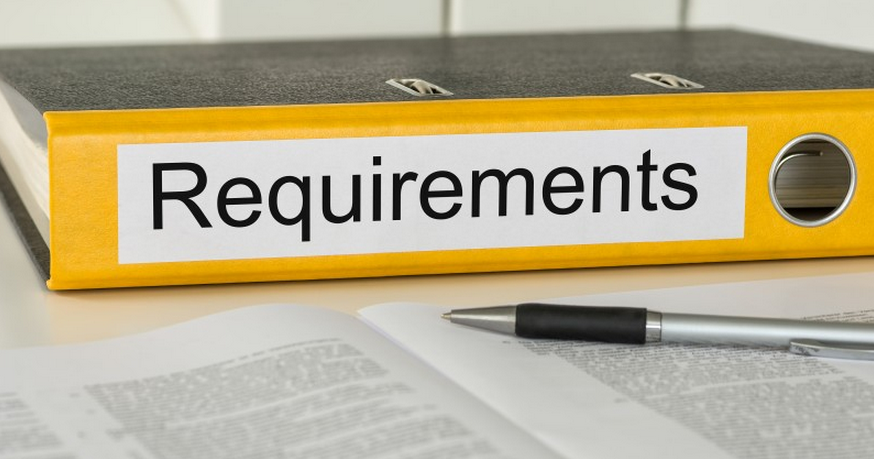Embracing Digital Innovation: E-Titles in the Philippines
 The use of technology has opened up a lot of opportunities and continuously making everything convenient, efficient, and accessible. Since almost everything is now available online, it follows that our land titles are among the legal documents that will eventually be accessible online. In 2008, the Land Registration Authority (LRA) first made it easier for anyone to obtain copies of their land titles by opening up the process for obtaining electronic titles. Some of you, particularly those who are new to homeownership, might not be aware of this, so let's get into the details of what e-Titles are.
The use of technology has opened up a lot of opportunities and continuously making everything convenient, efficient, and accessible. Since almost everything is now available online, it follows that our land titles are among the legal documents that will eventually be accessible online. In 2008, the Land Registration Authority (LRA) first made it easier for anyone to obtain copies of their land titles by opening up the process for obtaining electronic titles. Some of you, particularly those who are new to homeownership, might not be aware of this, so let's get into the details of what e-Titles are.
 What are E-Titles?
What are E-Titles?
E-titles, or electronic titles, are digital versions of land or property titles that can be stored, managed, and accessed electronically. This transition from physical documents to digital platforms aims to streamline the process of land registration, transfer, and verification, ultimately reducing bureaucracy and enhancing the overall efficiency of the real estate industry.
In the Philippines, a land title—also referred to as a certificate of title—has two physical copies. It is your best evidence of land ownership. It gives details about the location and size of the land. Every parcel of property also has a unique registration number in addition to your legal name. The Original Certificate of Title is kept in the Register of Deeds (RD) vault, while the Registered Owner (RO) retains the Owner's Duplicate Copy. These two titles are identical in appearance and are hand-printed on a specific type of paper.
How to get your electronic title?
1.Go to the Land Registration Authority (LRA) or the Register of Deeds (RD).
2. Forward a copy of the Owner's Duplicate Certificate of Title, a Conversion Request Form, and any other required documentation.
3.The resulting processing title fee must be paid. The system computes the fees automatically. A fresh Electronic Certificate of Title, or eTitle, is created once everything checks out. The LRA or RD handles the title conversion procedure following payment. The registered owner will receive a duplicate copy of the electronic land title printed with a unique title number generated by the system.
4.After it is published on a designated date, claim your eTitle. Following the conversion of the manually issued title into an eTitle, all future land-related transactions must be carried out using the new land title. Your prior land title will no longer be valid.
 What are the required documents to get an e-title?
What are the required documents to get an e-title?
1. Copy of the presenter's valid identification card from the government (passport, GSIS, SSS, HDMF, PhilHealth, driver's license, or postal ID, for example).
2. The owner's confirmed petition.
3.Copy of land title belonging to the original owner.
4. Tax clearance
5.The tax declaration in a certified true copy.
The LRA staff member will verify the authenticity of your documents by comparing or matching your duplicate copy with the original after receiving them. How can manual titles be converted to electronic titles?
How can manual titles be converted to electronic titles?
There are two ways to convert your manual titles to e-titles. One, when a voluntary transaction takes place, such as when you visit the Register of Deeds to have a sale, mortgage, or lease recorded in the title. As your transaction is being processed, the RD will also convert your manually issued title into an electronic land title.
Second, the Standard Conversion, or the voluntary request made by the registered owner to have their title converted to an eTitle by the Register of Deeds. The prerequisites for this kind of conversion procedure are listed below.
- A copy of the presenter's legitimate government-issued identification, such as a driver's license, passport, GSIS, SSS, HDMF, PhilHealth, or postal ID.
- When an agent is assisting the registered owner, they must have a Special Power of Attorney (SPA).
- A duly notarized Secretary Certificate or Board Resolution empowering a representative to submit the conversion request to the Registry of Deeds is required for corporations.
- The duplicative of the certificate of title issued to the owner and, if applicable, each issued co-owner.
Conversion fees:
- Entry Cost: ₱30 for each entry
- The registration fee is ₱120 for the SPA, ₱30 for the Verified Petition, and ₱120 for the Board Resolution or Secretary's Certificate.
- Fee for Issuing Certificate of Title: ₱60 for each title issued; ₱30 for each extra lot parcel.
- The cost to issue an extra copy of the certificate of title is ₱60 for the first page and ₱30 for each additional page.
- Annotation fee= ₱30
- Judicial form fee= ₱30 for each issued title
Advantages of E-Titles:
- Increased Efficiency: With e-titles, the time-consuming processes of paperwork, manual verification, and physical transfer of documents are significantly reduced. The automation of land registration and transfer procedures saves time for both buyers and sellers, expediting property transactions.
- Enhanced Security: E-titles offer improved security measures compared to traditional paper-based titles. Digital encryption and authentication technologies protect the integrity of the documents, making them less susceptible to tampering or fraud. This provides stakeholders with greater confidence in the validity of the title.
- Improved Transparency: E-titles introduce a higher level of transparency in property transactions. The digital nature of these titles allows for easy access to information, including property details, encumbrances, and ownership history. This accessibility promotes transparency and helps prevent disputes or fraudulent transactions.
- Cost Savings: The adoption of e-titles reduces administrative costs associated with paper-based processes. The need for physical storage, handling, and transportation of bulky documents is eliminated, resulting in significant cost savings for both the government and individuals involved in property transactions.
Implementation and Challenges
The implementation of e-titles in the Philippines is a multifaceted process that involves collaboration between various government agencies, including the Land Registration Authority (LRA), the Department of Information and Communications Technology (DICT), and the Registry of Deeds.
However, despite the numerous benefits, the transition to e-titles is not without challenges. Some of the key hurdles include ensuring data privacy and protection, addressing technical infrastructure gaps, and ensuring widespread adoption and acceptance of e-titles across all sectors of the real estate industry.
 Impact on Real Estate and Economic Growth
Impact on Real Estate and Economic Growth
The Philippines' adoption of e-titles has the potential to trigger important transformations in the real estate industry. By creating a safe and effective environment for real estate transactions, the streamlined procedures and enhanced transparency may draw in more domestic and foreign investors. Thus, there may be a decrease in land ownership disputes and an increase in development and economic growth.
Conclusion
A significant step toward the creation of a more effective, transparent, and safe land titling system in the Philippines is the transition from traditional land titles to e-titles. Although there are still obstacles to overcome, continued work to resolve these problems should result in e-titles being adopted and accepted more widely, maximizing the real estate market's potential and advancing the nation's economy as a whole.
Adopting e-titles highlights the Philippines' commitment to innovation, openness, and economic advancement in the digital age while also modernizing the land titling process as technology develops.
---------------------------------------------------------------
For inquiries contact us thru:
Email: inquiry@buildeee.com
Phone: 0992-347-4372
Interested in applying a Loan? Visit us via:
Let's get connected! 💫
Facebook: www.facebook.com/buildeee
Instagram: www.instagram.com/buildeee
TikTok: www.tiktok.com/buildeee
Twitter: www.twitter.com/@buildeeepro
LinkedIn: www.linkedin.com/buildeee
- #blockchain technology in real estate
- #use of blockchain technology in real estate
- #Electronic Land Titles
- #E-titles in the Philippines
- #real estate and technology





